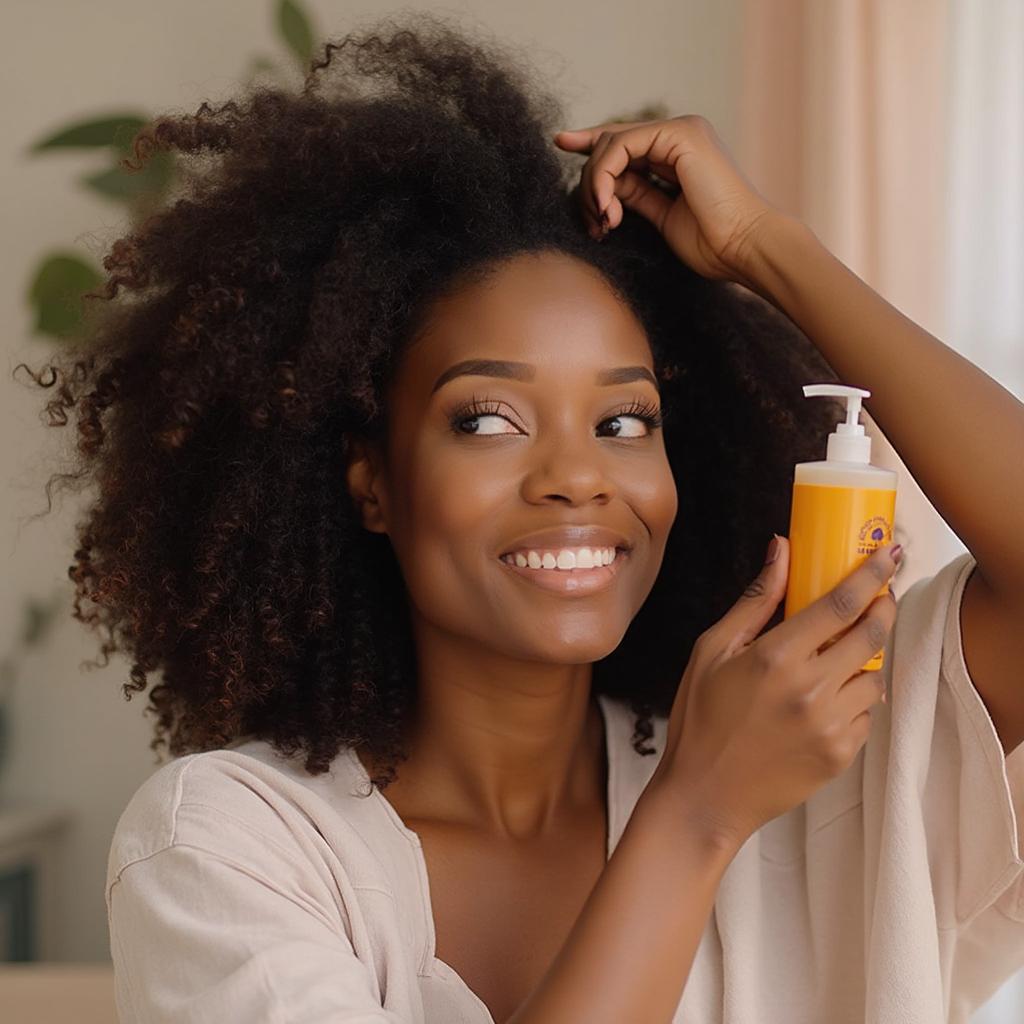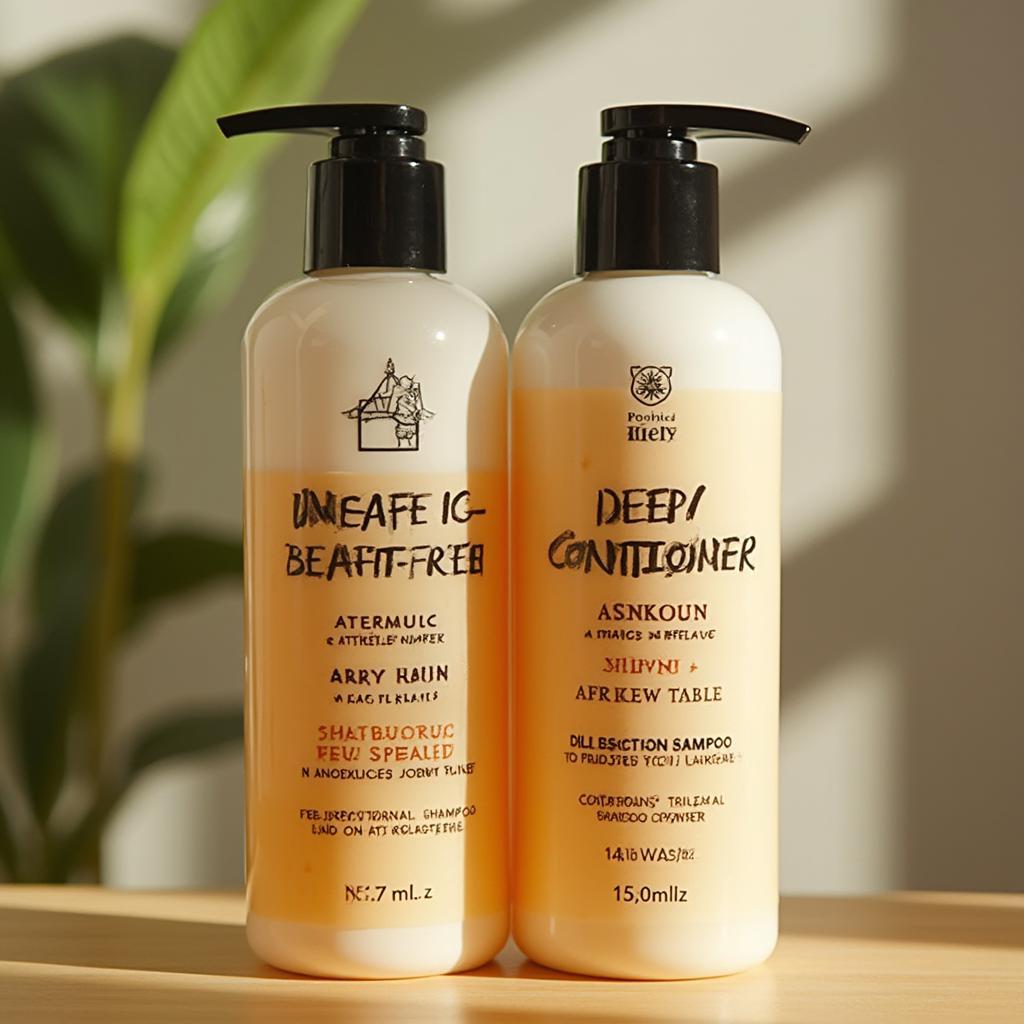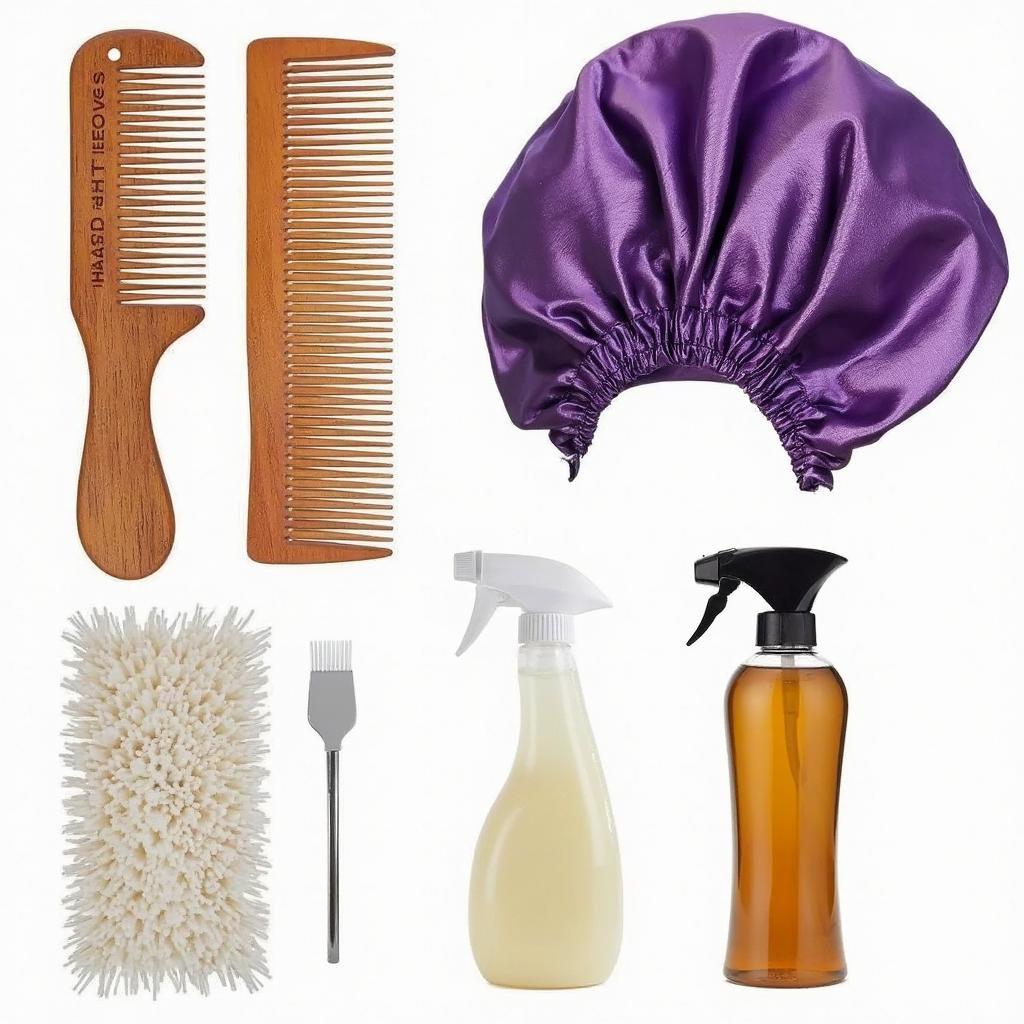Your cart is currently empty!

African Hair Care Tips: The Ultimate Guide
African hair, with its unique texture and curl patterns, requires specific care to maintain its health and vibrancy. This guide provides comprehensive African Hair Care Tips, covering everything from cleansing and conditioning to styling and protecting your beautiful tresses.
 African Hair Care Routine
African Hair Care Routine
Understanding Your Hair Type
Knowing your hair type is crucial for effective african hair care. Hair types range from 3A (loose curls) to 4C (tightly coiled). This helps determine which products and techniques will work best. For example, 4C hair might need richer moisturizers than 3A hair. hair care tips for natural african hair will delve deeper into the specifics of caring for natural textures.
Cleansing and Conditioning: The Foundation of African Hair Care
Proper cleansing and conditioning are the cornerstones of healthy african hair. Use a sulfate-free shampoo to avoid stripping natural oils and a moisturizing conditioner. Deep conditioning treatments, especially for those with tighter curl patterns like 4C, are essential for adding moisture and preventing breakage.
What is the best way to cleanse African hair? Gentle cleansing with a sulfate-free shampoo is ideal.
How often should you wash African hair? It depends on your hair type and lifestyle, but generally, washing once a week or every two weeks is sufficient.
 Sulfate-Free Shampoo and Deep Conditioner Bottles
Sulfate-Free Shampoo and Deep Conditioner Bottles
Moisturizing and Sealing: Locking in Hydration
African hair tends to be dry, making moisturizing a key component of african hair care. Use water-based moisturizers and seal in the hydration with oils like jojoba or shea butter. tips on how to take care of natural african hair offers further advice on maintaining moisture in natural African hair.
What are the best moisturizers for African hair? Water-based leave-in conditioners and creams are excellent choices.
How can you seal in moisture? Natural oils like jojoba, coconut, and shea butter are effective sealants.
Protective Styling: Minimizing Damage
Protective styles, such as braids, twists, and weaves, can help protect your hair from environmental damage and manipulation. However, it’s important to avoid styles that are too tight, which can lead to hair loss. For advice tailored to younger hair, check out african american baby hair care tips. Remember, even protective styles need regular care and moisturizing.
Choosing the Right Protective Style
Consider your hair type, lifestyle, and the time you have for maintenance when choosing a protective style.
Maintaining Protective Styles
Keep your scalp clean and moisturized while wearing a protective style. Avoid keeping them in for too long, which can lead to matting and breakage.
“Protective styling can be a game-changer for maintaining healthy African hair, but it’s crucial to choose styles that aren’t too tight and to continue moisturizing regularly,” says Dr. Anika Smith, a trichologist specializing in African hair care.
Styling Tips for African Hair
When styling your hair, use wide-tooth combs and avoid harsh brushing, which can cause breakage. Opt for satin bonnets or pillowcases to reduce friction and maintain moisture while you sleep. winter hair care tips for african american hair offers specific advice for protecting your hair during colder months.
Detangling Tips
Detangle your hair when it’s wet and conditioned, using a wide-tooth comb or your fingers.
Heat Styling Precautions
If you use heat styling tools, apply a heat protectant spray beforehand to minimize damage.
“Remember, patience and gentleness are key when styling African hair. Avoid harsh pulling and tugging, which can lead to breakage,” advises celebrity stylist, Jamal Thompson, known for his expertise in African hair.
 African Hair Styling Tools
African Hair Styling Tools
Diet and Lifestyle: Inside-Out Approach to African Hair Care
A healthy diet rich in protein, vitamins, and minerals promotes healthy hair growth. Staying hydrated by drinking plenty of water is also crucial. hair care tips for african american with brown hair provides tailored advice for maintaining the vibrancy of brown African hair.
Conclusion
Taking care of African hair involves understanding its unique needs and adopting a consistent routine. By following these african hair care tips, you can maintain your hair’s health, vibrancy, and natural beauty.
FAQ
- How often should I deep condition my African hair? Aim for a deep conditioning treatment every 1-2 weeks.
- What are some good oils for sealing in moisture? Jojoba, coconut, and shea butter are excellent choices.
- How can I prevent breakage? Be gentle when detangling and styling, avoid tight hairstyles, and moisturize regularly.
- What is the best way to sleep with African hair? Use a satin bonnet or pillowcase to reduce friction.
- Are there any specific tips for winter hair care? Yes, consider using heavier moisturizers and protective styles during the colder months.
- How can diet affect my hair health? A balanced diet rich in protein, vitamins, and minerals promotes healthy hair growth.
- What are the benefits of protective styling? Protective styles minimize manipulation and protect your hair from environmental damage.
Need More Help? Contact us via WhatsApp: +1(641)206-8880, Email: [email protected] or visit us at 456 Pine Avenue, Toronto, ON M5V 2J4, Canada. We have a 24/7 customer support team.

Leave a Reply